Technology Transfer FAQ

1. General Information
Q: What is technology transfer?
A: What we mean by technology transfer is the process of transferring knowledge, innovations, and technologies from a research institution to another institution for commercialization, e.g. by founding spin-off companies or licensing patents to industry partners.
Q: Why is technology transfer important?
A: Technology transfer bridges the gap between research and real-world application, enabling innovations to reach the market, benefit society, and contribute to economic growth, which constitutes the third mission of universities.
Q: Which research ideas can be commercialized?
A: For an idea to be commercialized, it generally needs to be new, inventive, and have a clear market potential. This means it should offer a novel solution or improvement over existing technologies, be non-obvious to someone skilled in the field, and meet a market need or solve a significant problem. Additionally, the idea should be protectable, e.g. through patents, to secure a competitive advantage in the marketplace.
2. Intellectual Property (IP)
Q: What is intellectual property (IP)?
A: Intellectual property refers to creations of the mind, such as inventions, literary and artistic works, designs, and symbols, names, and images used in commerce. In the context of technology transfer, IP often includes patents, copyrights, trademarks, and trade secrets.
Q: How do I protect my intellectual property?
A: Protecting your IP typically involves securing patents, trademarks, or copyrights, depending on the nature of the innovation. The technology transfer office (TTO) of your research institution can guide you through the process, first assessing you idea’s potential for IP protection and commercialization, and then helping you with filing applications, managing IP rights, and ensuring that your IP is protected.
Q: When should I contact the TTO about my idea?
A: It is crucial to avoid publicly presenting or publishing research that has the potential for commercialization before securing IP protection. Once published, you may lose the ability to protect your innovation legally, which can significantly reduce its commercial value. Always consult with your TTO as soon as possible, before disclosing any potentially valuable research.
Q: Who owns the IP emerging from my research?
A: Typically, the research institution retains ownership of IP developed by its employees, but shares revenue with inventors. Specific policies may vary, so we encourage you to contact the TTO of your research organization for detailed information.
3. Commercialization strategies
Your institution’s TTO can provide guidance on commercialization options and support you in their execution.
Q: What is a technology license?
A: A technology license is a legal agreement that grants a company or individual the rights to use, develop, and commercialize a technology owned by another party. The license typically involves the payment of royalties or fees and may include conditions on how the technology is used. Licensing is an excellent option for those who prefer to avoid the more involved process of starting their own company, as it allows your technology to reach the market without the need to manage a business. Here, the TTO of your research institution can assist in identifying potential partners who may be interested in licensing your technology.
Q: What is a spin-off company?
A: A spin-off is a new company formed to commercialize a technology or innovation developed within a research institution or larger organization. Your TTO provides support for creating and growing spin-offs by offering business advice, connecting you with investors, giving you access to incubators and accelerators, and helping you navigate legal and regulatory processes, While founding a spin-off can be a rewarding way to bring your innovation to market, it is not the only path. Licensing your technology to an established company is a less involved option and can be equally effective in ensuring your innovation’s success. Both options are important and can be pursued depending on your interest and desired involvement level.
4. Financial aspects
Q: Which funding opportunities are available for spin-off companies?
A: Spin-offs can access various funding sources, including venture capital, angel investors, government grants, and industry partnerships. Additionally, some research institutions have established investment structures which allow them to fund their spin-off companies.
Q: What are the risks and costs for researchers involved in technology transfer?
A: In most cases the research institution assumes the financial burden associated with technology transfer, including the costs of patenting, legal fees, and business development. By handling these aspects, the institution allows researchers to focus on their innovations and research, while the TTO works to bring their technologies to market. This significantly reduces the burden on researchers and ensures that the commercialization process is as smooth as possible.
Q: How are revenues from technology transfer distributed?
A: Generated income is typically split between the inventor, research institution and TTO, according to the research institution’s IP policy.
5. VCQ Programs for technology transfer support
Q: Which resources are available for quantum researchers interested in technology transfer?
A: Together with Entrepreneurship @ Uni Vienna we recently initiated the quantum innovation lab (ilab) program, providing researchers with the knowledge, skills, and resources needed to navigate the journey from lab to market. Participants receive mentorship from industry experts and experienced entrepreneurs who offer valuable insights into the practical aspects of founding and running a quantum tech company. Moreover, the VCQ is committed to building a strong quantum tech ecosystem, providing valuable support for researchers wanting to become entrepreneurs.
Q: Do I need a fully formed business idea to apply to the quantum ilab program?
A: No, you do not need a fully formed business idea when applying to our program. Defining a product in deep tech is not straightforward and so you will receive guidance by experts on how to assess your own ideas for commercial viability and turn them into a viable product.
Q: How can I stay updated on technology transfer opportunities?
A: You can subscribe to our mailing list, follow us on social media, or regularly check our website for news, upcoming events, and opportunities related to technology transfer.
